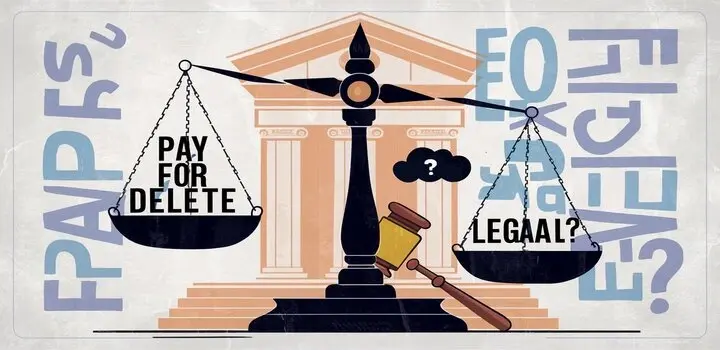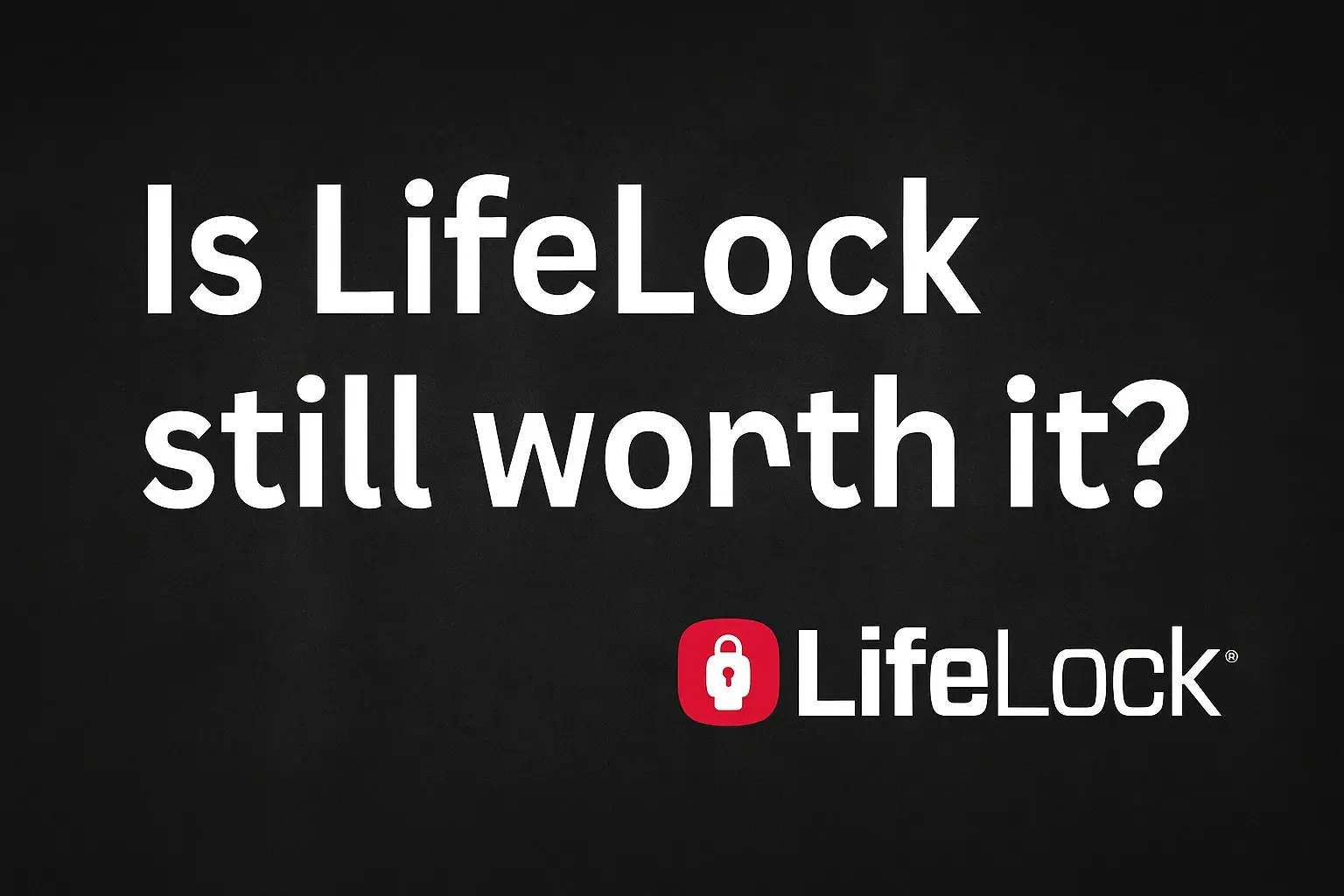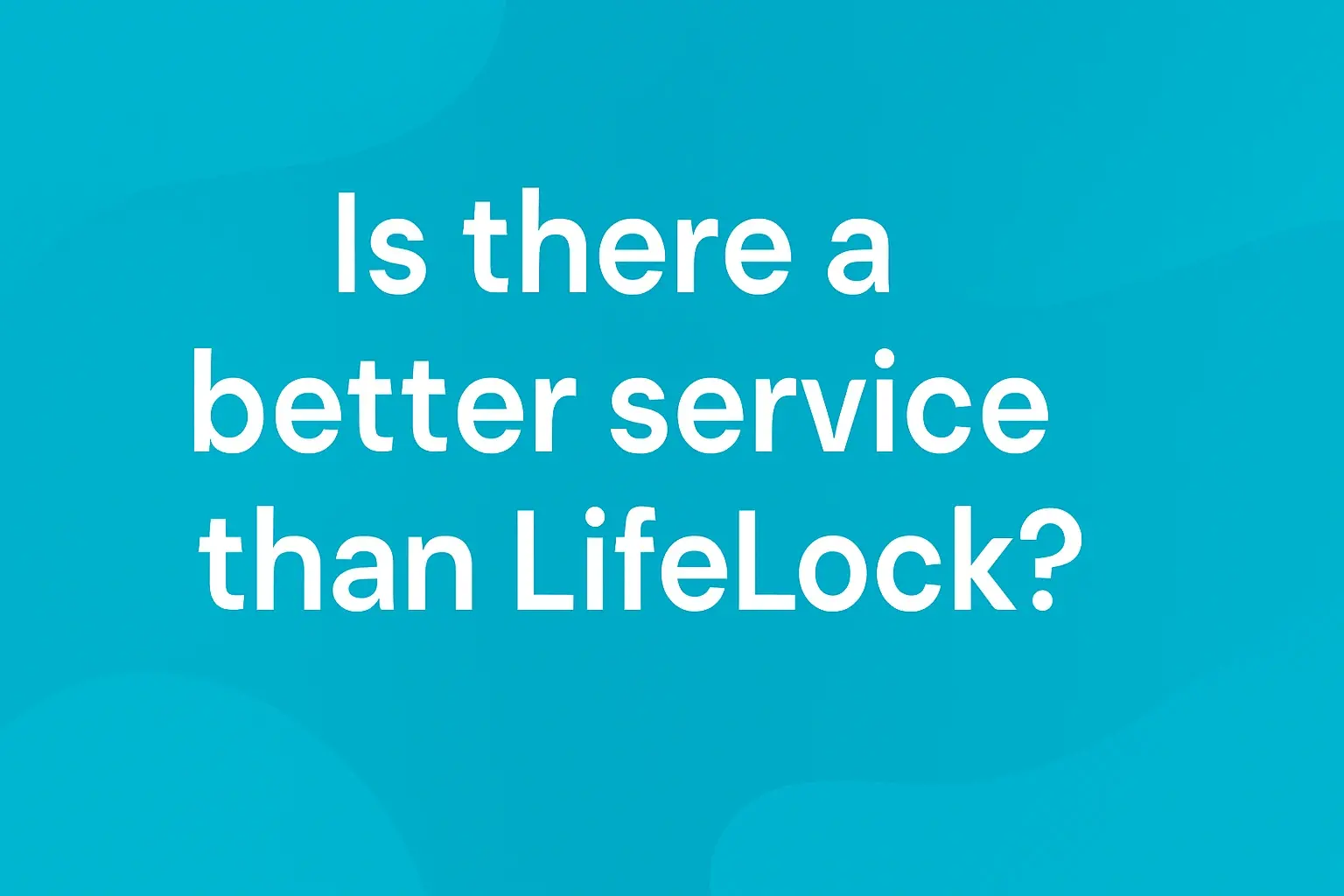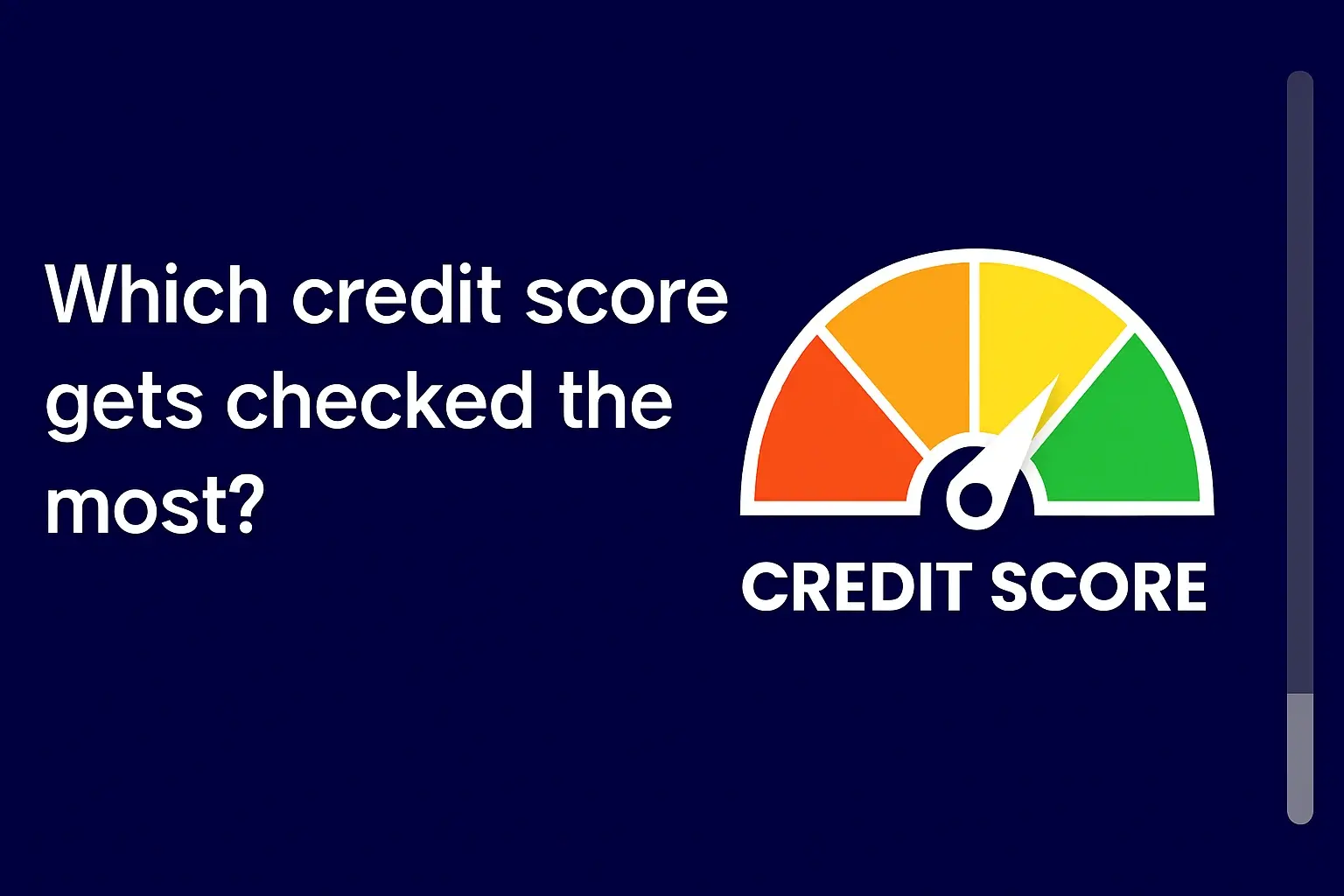-
Posted on: 01 Aug 2024

-
In today's digital age, online reputation is more important than ever. A negative search result, a damaging review, or an unflattering image can have serious consequences for individuals and businesses alike. This has led to the rise of online reputation management (ORM) services, including those offering "pay-for-delete" options. But is paying someone to remove negative content about you legal, ethical, and effective? This article explores the complexities of pay-for-delete services, your rights, and alternative strategies for protecting your online image.
What is "Pay-for-Delete"?
Pay-for-delete refers to the practice of paying website owners, review platforms, or other content providers to remove negative information about you or your business from the internet. This can encompass a wide range of content, including:
- Negative reviews on platforms like Yelp or Google Reviews
- News articles about past legal issues
- Mugshots posted on arrest record websites
- Defamatory content on blogs or forums
- Unflattering images or videos on social media
The premise is simple: you pay a fee, and the content is removed, effectively erasing it from the internet. However, the reality is far more nuanced, and the legality and effectiveness of such services are not always clear-cut.
The Legality of Pay-for-Delete: A Gray Area
The legality of pay-for-delete is complex and depends on several factors, including:
- The nature of the content: Is it factual, opinion-based, or defamatory?
- The jurisdiction: Laws vary significantly from country to country and even from state to state within the U.S.
- The terms of service of the website hosting the content: Does the website have a policy against removing content for payment?
- The source of the content: Who originally posted the information?
Here's a breakdown of some key considerations:
1. Defamatory Content
If the content is defamatory (i.e., false and damaging to your reputation), you have legal grounds to pursue its removal. Defamation laws protect individuals and businesses from false statements that harm their reputation. In such cases, you can send a cease-and-desist letter to the website owner demanding the content's removal. If the content is indeed defamatory and the website owner refuses to comply, you may be able to file a lawsuit. While "pay-for-delete" might seem like a quicker solution, pursuing legal action can sometimes be more effective in the long run and deter future defamatory posts.
2. Factual and Accurate Content
If the content is factual and accurate, removing it becomes much more challenging. Website owners generally have the right to publish truthful information, even if it's unflattering. Paying them to remove such content could be seen as an attempt to suppress the truth, which is ethically questionable and may even be illegal in some jurisdictions. For instance, paying a news outlet to remove a factual article about a past business scandal could be considered obstruction of information.
3. Terms of Service Violations
Many websites have terms of service that prohibit the removal of content for payment. Violating these terms could result in the website owner facing penalties or being banned from the platform. Therefore, website owners may be hesitant to engage in pay-for-delete schemes, even if they are tempted by the financial incentive.
4. Potential for Extortion
In some cases, pay-for-delete can border on extortion. If a website owner threatens to publish damaging information about you unless you pay them, this could be considered extortion, which is a criminal offense. It's crucial to distinguish between legitimate offers to remove content and extortion attempts. If you suspect you are being extorted, you should contact law enforcement.
Ethical Considerations
Even if pay-for-delete is technically legal in a particular situation, it raises ethical concerns. Should individuals or businesses be able to erase their past simply by paying for it? Critics argue that pay-for-delete can distort the truth, create an uneven playing field, and undermine public trust. Furthermore, removing negative content without addressing the underlying issues that led to it may only provide a temporary solution. The problem could resurface in other forms or on other platforms.
The Risks of Using Pay-for-Delete Services
While the promise of quickly removing negative content may be appealing, there are significant risks associated with using pay-for-delete services:
- Scams: Many pay-for-delete services are scams. They take your money and fail to deliver on their promises, leaving you worse off than before. It's crucial to thoroughly vet any service before hiring them.
- Incomplete Removal: Even if a service is legitimate, they may not be able to remove all instances of the negative content. The content may be replicated on other websites or archived in search engine caches.
- Backfire Effect: Attempting to suppress information can sometimes backfire, drawing more attention to the negative content than it would have otherwise received. This is known as the Streisand effect.
- Legal Repercussions: As mentioned earlier, attempting to pay for the removal of factual information could have legal consequences in some jurisdictions.
- Damage to Credibility: If it's discovered that you've been paying to remove negative content, it could damage your credibility and raise suspicions about your honesty and transparency.
Alternative Strategies for Content Removal and Online Reputation Management
Before resorting to pay-for-delete, consider these alternative strategies for managing your online reputation and removing unwanted content:
1. Contact the Website Owner Directly
The simplest approach is often the most effective. Contact the website owner directly and politely request the removal of the content. Explain why you believe the content is inaccurate, unfair, or defamatory. Provide supporting evidence if possible. Sometimes, a simple, well-reasoned request can be enough to convince the website owner to remove the content.
2. Submit a Legal Removal Request
If the content is defamatory, violates your copyright, or infringes on your privacy rights, you can submit a legal removal request to the website owner. This should be a formal letter outlining the legal basis for your request and demanding the content's removal. It's advisable to consult with an attorney before sending a legal removal request.
3. Utilize the Right to Be Forgotten
In the European Union, the "right to be forgotten" allows individuals to request the removal of personal information from search engine results that are outdated, inaccurate, or no longer relevant. While this right is not recognized in the United States, it may be applicable if the content is hosted on a website based in the EU or if the search engine operates in the EU.
4. Improve Your Online Presence
A proactive approach to online reputation management involves building a positive online presence. This includes creating and optimizing your website, social media profiles, and other online assets. By creating positive content, you can push down negative content in search engine results, effectively burying it.
5. Engage in Online Reputation Repair
If negative content is unavoidable, you can engage in online reputation repair. This involves responding to negative reviews, addressing complaints, and publicly acknowledging any mistakes you have made. By showing that you are responsive and committed to resolving issues, you can mitigate the damage caused by negative content.
6. Monitor Your Online Reputation
Regularly monitor your online reputation to identify any negative content as soon as it appears. This allows you to take prompt action to address the issue and prevent it from spreading. There are various online reputation monitoring tools available that can help you track mentions of your name or business online.
Mugshot Removal: A Specific Case
Mugshot removal is a particularly sensitive area of pay-for-delete. Many websites specialize in publishing mugshots of individuals who have been arrested, often accompanied by personal information such as their name, address, and charges. These websites often charge a fee to remove the mugshot, even if the charges were later dropped or dismissed.
The legality and ethics of mugshot websites are hotly debated. Critics argue that they exploit individuals who have been arrested, often for minor offenses, and that they can have a devastating impact on their employment prospects and personal relationships. Some states have enacted laws to regulate or restrict the publication of mugshots, but many mugshot websites continue to operate legally.
If you want to remove your mugshot from a website, you can try contacting the website owner directly and requesting its removal. You can also explore legal options, such as filing a lawsuit for invasion of privacy or defamation if the mugshot is accompanied by false or misleading information. However, the success of these efforts is not guaranteed, and mugshot removal can be a costly and time-consuming process.
Conclusion
While "pay-for-delete" services may seem like a quick and easy solution to online reputation problems, they are often risky, unethical, and ineffective. Before resorting to pay-for-delete, consider the legality of the content, the terms of service of the website hosting the content, and the potential for scams and backfire effects. Explore alternative strategies for content removal and online reputation management, such as contacting the website owner directly, submitting a legal removal request, building a positive online presence, and engaging in online reputation repair. By taking a proactive and strategic approach to online reputation management, you can protect your online image and mitigate the damage caused by negative content.











